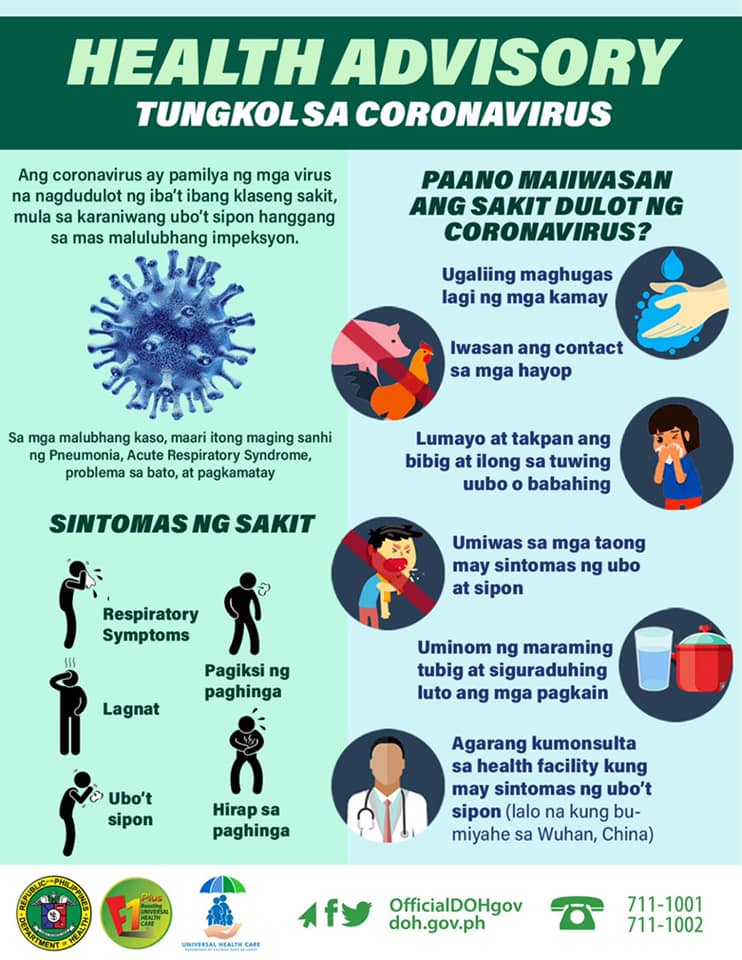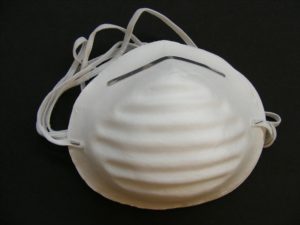The Philippine Department of Health (DOH) has heightened its efforts in light of the increasing number of cases and deaths due to novel coronavirus or 2019-nCoV.
ALSO READ: Soon-to-Rise OFW Hospital to Offer Free Services
At airports, the DOH’s Bureau of Quarantine has placed thermal scanners to help detect potential carriers of the virus. Moreover, the department issued a health advisory identifying the symptoms as well as citing preventive actions to help everyone avoid 2019-nCoV.
Tips for Avoiding Novel Coronavirus or 2019-nCoV
On December 31, 2019, the World Health Organization (WHO) received reports of pneumonia cases of unknown cause in Wuhan City, China, the Philippine News Agency reported. Initial investigation shows that the virus did not match other known viruses.
On January 7, 2020, Chinese authorities identified the virus as 2019-nCoV, the latest among a family of viruses including common colds and more serious strains, such as the Middle East Respiratory Syndrome coronavirus (MERS-CoV) and Severe Acute Respiratory Syndrome coronavirus (SARS-CoV).
What are the Symptoms of Novel Corononavirus or nCoV?
The Center for Disease Control and Prevention (CDC) mentioned that symptoms of coronaviruses range from mild to moderate, with some cases leading to lower-respiratory tract diseases, such as bronchitis and pneumonia.
Meanwhile, the DOH cited the symptoms of 2019-nCoV as follows:
- Cough
- Colds
- Fever
- Difficulty breathing
- Shortness of breath
How Can We Avoid 2019-nCoV?
Through a health advisory, the DOH shared the following tips to prevent the spread of 2019-nCoV:
- Wash your hands regularly.
- Avoid contact with animals.
- Avoid people who have symptoms of cough and colds.
- Always cover your mouth when coughing and sneezing.
- Drink plenty of water.
- Ensure that food is cooked properly.
- Consult a health facility if symptoms of cough and colds persist (especially if you traveled from Wuhan, China).

During a press briefing on January 24, 2020, DOH Undersecretary Rolando Domingo stated that “there is no verified nCoV case in the country until now.”
ALSO READ: Young Filipino Student Discovers Potential Cure for Diabetes
While it is somewhat reassuring that there are no confirmed cases of 2019-nCoV in the Philippines, we should all be alert and take precautionary measures. By following the above tips, we can protect ourselves — as well as our loved ones — from contacting a serious virus. It also helps to have a PhilHealth ID on hand, in case we need urgent treatment from illnesses.

